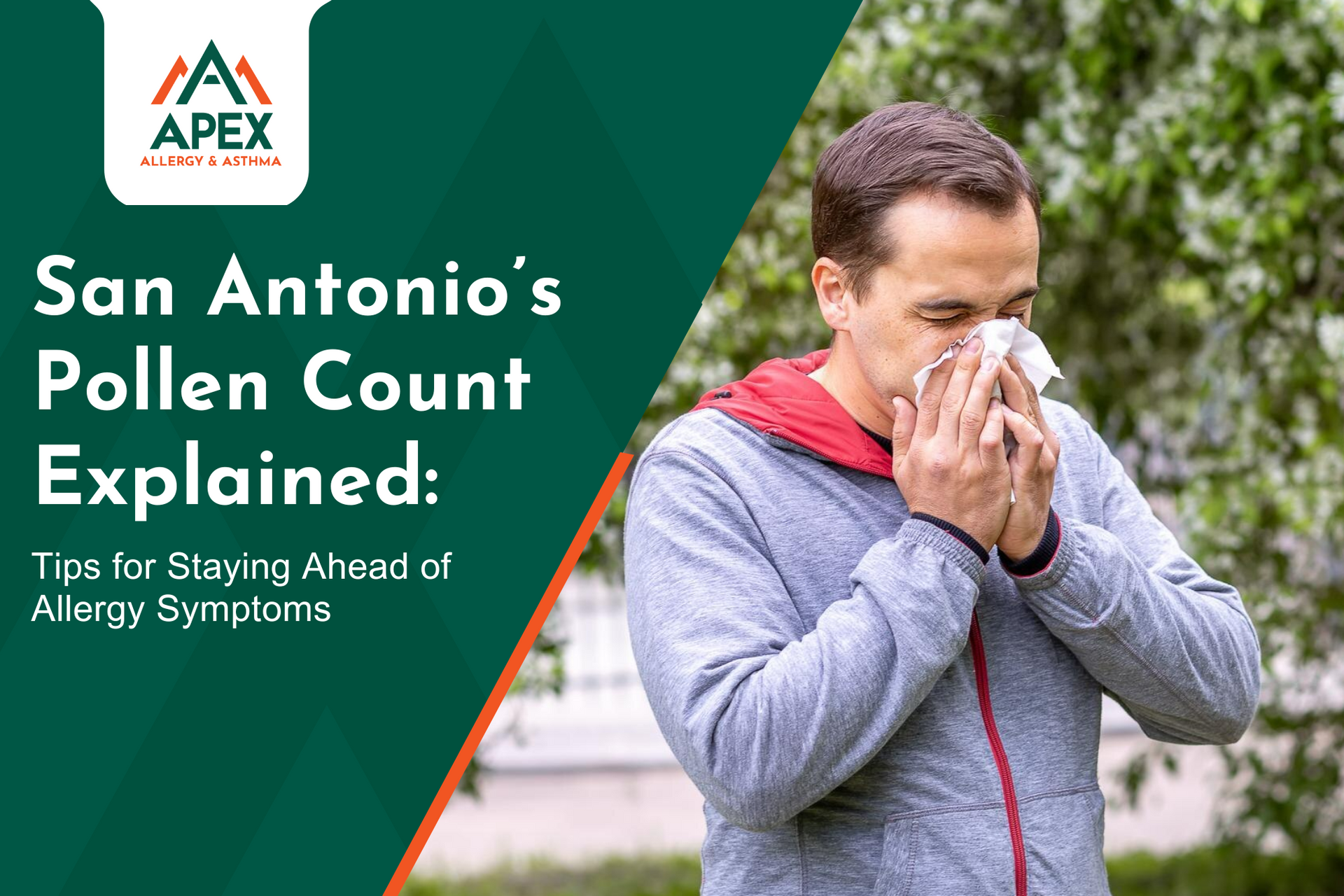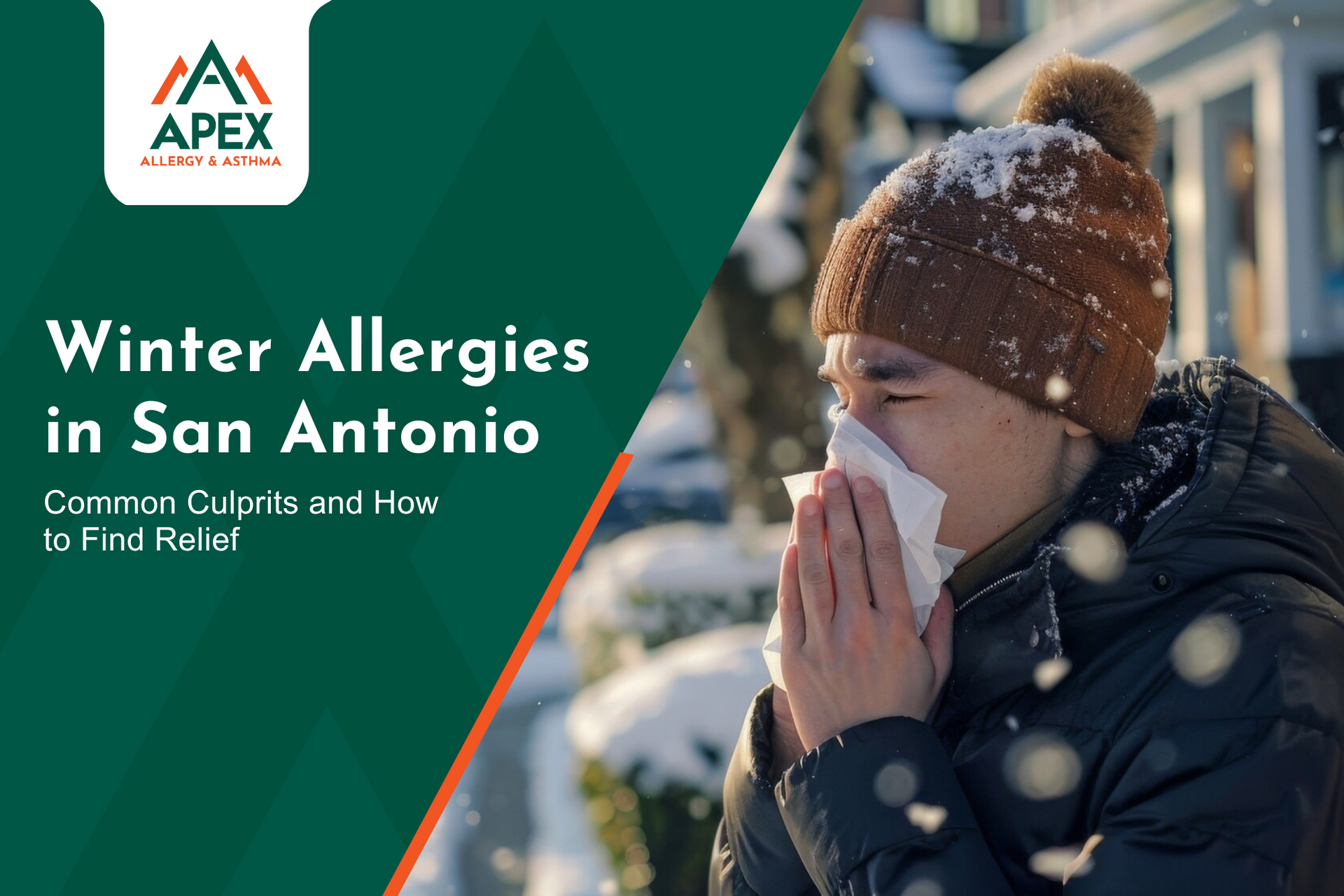Can You Have Pets if You're Allergic? Managing Allergies Safely
While the idea of pet companionship brings immense joy, pet allergies can cast a shadow over it. Whether you've just adopted a furry friend or are considering it, the fear of allergic reactions can dampen the excitement of pet ownership.
Many people struggle with pet allergies in San Antonio. If you feel like you’re missing out on all the love and companionship that pets bring into the lives of their owners, don’t worry. This blog will help you manage pet allergies safely with insights from a
San Antonio allergist.
Understanding Pet Allergies
Pet allergies can turn a snuggle into a sneeze-fest in a matter of seconds. During that period, what exactly happens at a microscopic level that causes the allergic reaction? You may think the fur is to blame, but the proteins in the pet’s dander (dead skin cells), urine, and saliva are the real culprits. When these proteins come into contact with your body, your immune system overreacts, leading to symptoms like sneezing, itching, and watery eyes.
The Importance of Pet Allergy Testing
Before stocking up on over-the-counter allergy medication, it's essential to pinpoint the underlying cause of your symptoms. This is where pet allergy tests come in. Our allergy testing center in San Antonio provides a comprehensive assessment of your allergic triggers, allowing our allergists to create a personalized allergy management strategy for your specific situation.
Animal allergy testing is not a one-size-fits-all procedure. It encompasses a range of methods, each tailored to your unique needs and circumstances. This flexibility ensures you receive the most accurate results for the most effective allergy management plan.
- Skin Prick Tests: This process includes applying tiny amounts of allergens onto your skin and observing reactions. It offers quick results and valuable information about your sensitivities.
- Blood Tests: These tests analyze your blood sample for allergen-specific antibodies, offering a comprehensive overview of your allergic profile.
These tests cover an array of potential triggers, from everyday sources like dogs and cats to uncommon allergens such as birds and rodents. Pet allergy testing empowers you to take proactive steps toward managing your allergies effectively.
Read More:
Allergy Testing Methods: Understanding the Differences between Scratch Tests and Patch Tests
Tips for Coexisting with Your Furry Friends

You can outsmart pet allergies with strategies for minimizing exposure to allergens, allowing you to bond with a pet without constantly fearing a severe allergic reaction. Here are some tips from our allergy experts:
1.Create Allergy-Free Zones
Designate specific areas of your home (or office), such as the bedroom, as off-limits to your pet to maintain a sanctuary free from allergens. Keep doors shut to prevent airborne dander from entering this space.
2. Invest in Air Purifiers
High-quality air cleaners equipped with High-Efficiency Particulate Air (HEPA) filters help remove pet dander and other allergens, significantly reducing the chances that allergic reactions occur.
3. Practice Regular Grooming
If you own a pet or are staying with someone who has a pet, bathing and grooming them frequently reduces the amount of dander they shed, which decreases the frequency of allergy symptoms.
4. Opt for Hypoallergenic Breeds
While no breed is entirely hypoallergenic, some produce fewer allergens than others. Consider adopting or working with a breed less likely to trigger your allergies, such as a poodle or bichon frise.
Finding Relief from Pet Allergy Symptoms
If you have allergies and frequently work with pets or are a pet parent in San Antonio, don’t fret — relief is within reach. From over-the-counter medications to natural remedies, a wealth of options are available to help you manage your symptoms effectively.
- Over-the-Counter Medications
Doctors usually recommend antihistamines as your first option for managing mild pet allergy symptoms. These medications block the effects of histamine, the chemical responsible for allergy symptoms like sneezing, itching, and watery eyes. Popular options include cetirizine, loratadine, and diphenhydramine. It's important to talk to your allergist before trying any new medication, especially if you have health issues or are currently on other medications.
- Prescription Medications
In severe cases of pet allergies, prescription allergy medications may be necessary to provide relief. These may include more potent antihistamines, nasal corticosteroids, or even allergy shots (immunotherapy) to desensitize your immune system to pet allergens over time. Your San Antonio allergist can assist in identifying the best treatment approach tailored to the severity of your symptoms and your specific health requirements.
- Natural Remedies
In addition to conventional medications, some natural pet allergy relief options may complement your allergy management plan, helping minimize allergens in your workplace or home environment:
- Saline Nasal Sprays
Saline nasal sprays can help rinse allergens from your nasal passages, relieving congestion and irritation.
- Quercetin
Quercetin stands out because it has a long history of safe use and effectively addresses vital symptoms of asthma, such as reducing inflammation and mucus production. It also helps manage allergic rhinitis by inhibiting proteins that attract eosinophils, a type of white blood cell involved in allergic reactions. Given its natural origin, low cost, and minimal side effects, quercetin is a promising supplement for managing pet allergies and other allergic diseases.
Implementing these suggestions into your everyday habits makes managing your allergies easier and promotes more comfortable living conditions for you and your animal companion. Keep in mind that while natural remedies offer some relief, they are often less effective than prescription medications, especially for severe allergy symptoms.
Enjoy Your Pets Despite Your Allergies in San Antonio!
Struggling with allergies but yearning for the joy of pet companionship? Choosing a pet breed less likely to trigger your allergies, implementing effective strategies (like regular cleaning and air filtration), and seeking professional support from allergists in San Antonio are the most rewarding steps you can take toward an allergy-free life with your pet. Remember, managing allergies safely is not only possible but within your reach.
Effectively manage your pet allergies today and enjoy the company of a loyal and loving pet. If you want more insights on pet skin allergies or are looking for the best puppy allergy medication, do not hesitate to consult our experts. Contact Apex Allergy & Asthma Clinic today at 210-490-2051 or click the “Book an Appointment” button to schedule a consultation with our allergist, Dr. Stahl. Don’t let allergies hold you back from the joy of pet ownership – let us help you find relief and peace of mind. Reach out now and embark on your journey to a happier, healthier life with pets!



